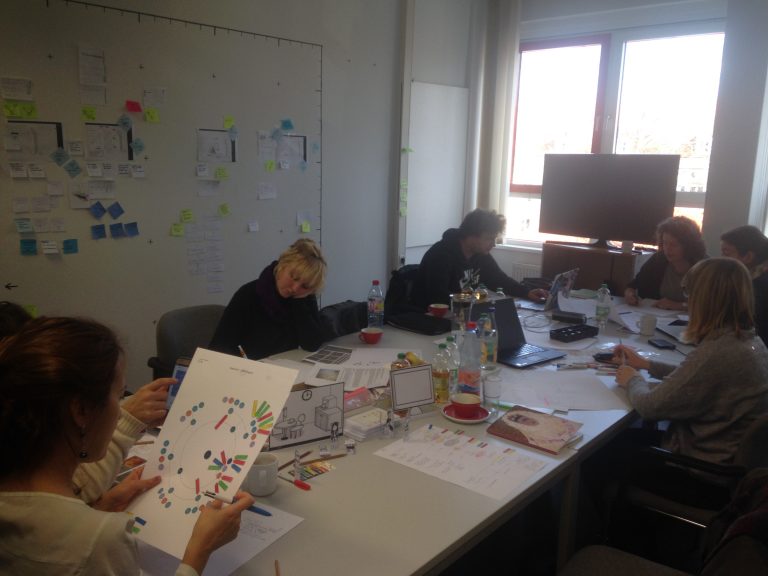The MinD project hosted two secondments in November and December 2017, one at INTRAS in Valladolid, Spain, and the other at the Technische Universität Dresden and Alexianer St Hedwig Hospital in Berlin, Germany.
The aim of the secondments was to start with the concept development and realization of the two design ideas selected with the help of people with dementia and healthcare experts in October. The two secondments in Spain and Germany continued the thread of consultation and co-design with people with dementia and with healthcare experts: Two co-design sessions were held by INTRAS with 12 people with dementia and with care professionals; and one expert feedback session was held at the Alexianer Hospital. Both sessions provided vital feedback on the two designs: The ‘Good Life Kit’ and the ‘Social Engagement Map’.
The ‘Good Life Kit’ will help people with dementia to deal with their condition constructively and openly, especially at the point of the diagnosis when there can be a feeling of loss and uncertainty about the future. The ‘Social Engagement Map’ aims to help people with dementia stay socially connected and engaged. It responds to findings that elderly people in general have fewer social connections, and that people with dementia in particular may find it difficult to maintain or establish social connections.
During the design work, designers, technologists and psychologists from the MinD team worked together to develop the format and content for the different parts of the designs. The team created visual examples and models to discuss how the designs will look, how they will work, and when and how they can be used. The feedback from the co-design and expert groups provided vital feedback to help further develop these ideas in the new year to make the designs fit for purpose.
In addition to the design development, visiting researchers participated in local events and training sessions, e.g. taking the Snoezelen VR test for people with dementia, and they also worked on the completion of data analysis and publications related to the data collection phase.

